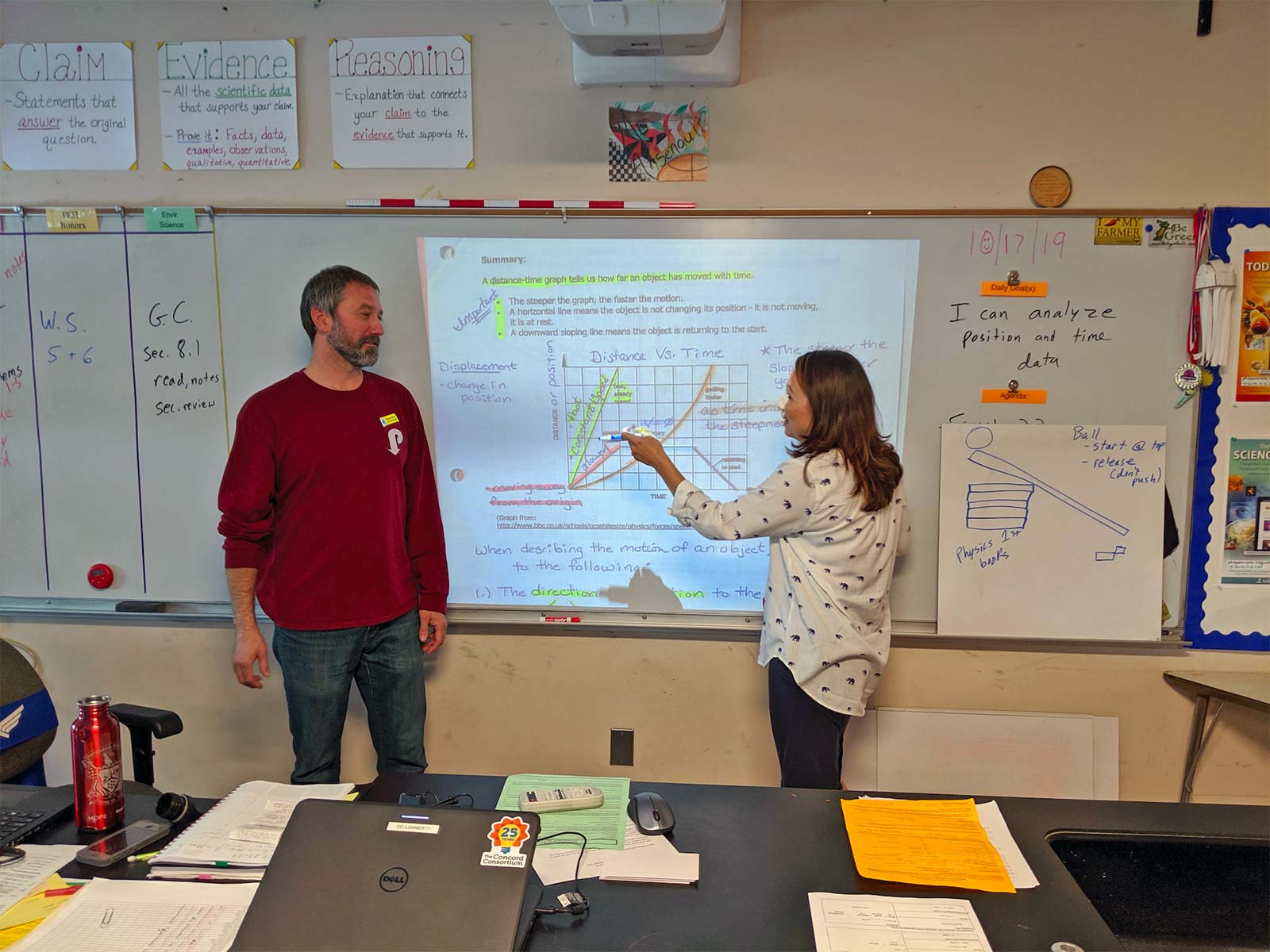Last spring, when a co-teacher in an inclusive physics classroom that is piloting our InquirySpace curriculum in Portsmouth, Rhode Island, asked if she could join our summer teacher workshop, I was elated. I was especially eager to learn how Michelle Murtha would create accommodations to make ninth grade physics accessible for her students on IEPs (Individualized Education Plans).
My first of three sons was born with Down syndrome. Russell is now 28 years old. My husband and I are both educators, and the landscape of access and equity has been sharpened and honed for us over the years as Russell bumped up against both metaphorical and physical walls throughout his schooling. Sadly, traditional high school science classes were not open to Russell and his peers on IEPs, though he was thrilled to take robotics and video production with a couple exceptional teachers who agreed to have him in their regular classes. Russell would have loved to take a physics class. In fact, he would still like to be a space scientist!
Michelle is a particularly gifted special education teacher who partners with a regular physics teacher to co-teach inclusive physics. Of the twenty students in her class this past year, nine had IEPs and two additional students needed extra support. Michelle adopts many recommendations from the Universal Design for Learning framework developed by CAST to improve and optimize teaching and learning for all people based on scientific insights into how humans learn.

Co-teachers Michelle Murtha and JP Arsenault collaboratively teaching inclusive ninth grade physics at Portsmouth, RI, high school.
I’m delighted that Michelle and I were able to co-author an article for NSTA’s The Science Teacher documenting the individualized supports Michelle developed for her class. “Accessible physics for all” highlights the accommodations that scaffolded student learning with technology-based physics activities and independent experimentation investigating force and motion.
The InquirySpace project is researching how students can use an integrated set of computer-based tools to undertake sophisticated, open-ended investigations similar to the approach and thinking used by real scientists.